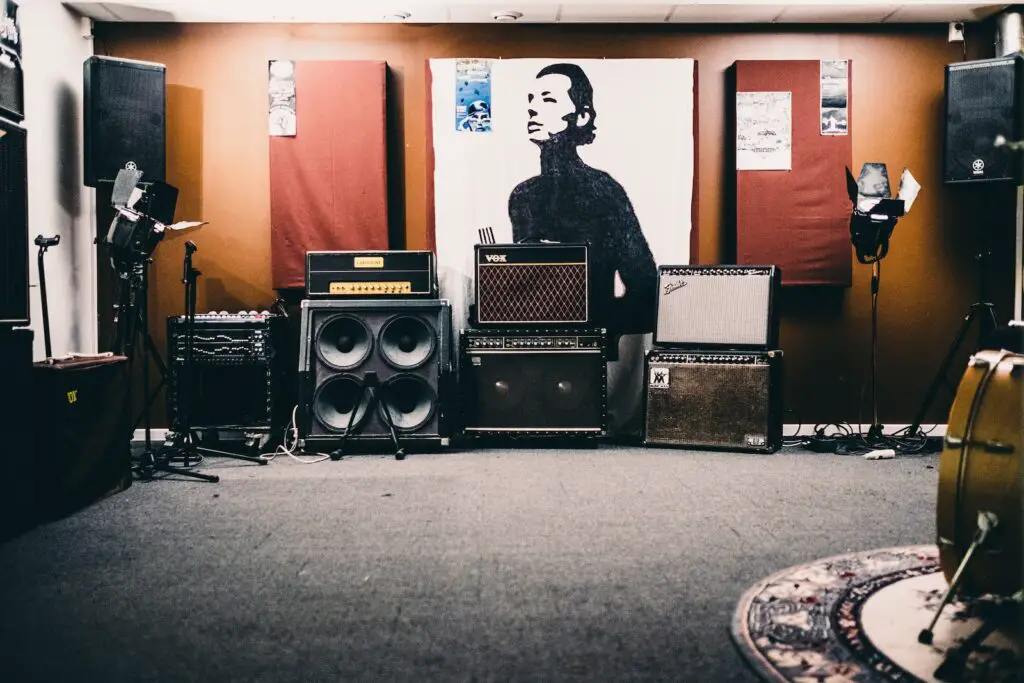In the music industry, countless companies, artists, instruments, and devices work closely together to build different songs and bring to us the beautiful gems that we adore for years.
It is obvious that a lot goes behind the production of music or its live performance, but one of the most crucial and underrated things that people often overlook is an amplifier.
Short for amp, it has revolutionized the entire music industry and especially taken the public or live performances for storm with its stunning features and functions.
If you are a musician or even a learner, you might be aware of the basic concept of an amp and why it is used, but in this article, we would discuss it more in detail.
We would also try to find out whether you can use the same amp for guitar and bass and what would be the repercussions of either.
What Is Amp?
An amp or more commonly known as a guitar amplifier is nothing but a device that is utilized to amplify a sound. Amplification refers to strengthening and making the sound or voice appear firm.
An amplifier is more prominently used for guitars, as the sound of a guitar cannot be heard by many in a large room or concert, which is why performers and bands rely on amps.
An amp can work on an acoustic guitar, bass, or even an electric guitar depending on the settings you prefer and the kind of amp you have purchased.
Amplifiers come in all different sizes and features, and you can pick one that suits your requirements and can produce the best results.
There are numerous settings available in an amplifier, with which you can adjust the bass, treble, frequencies, and reverb of the sound.
The use of amps can be dated as early as 1910-the 1920s when speakers were just being popularised and the introduction of heavy or amplified instruments or performances was becoming popular.
They were mostly used for theatres and public performances or speeches, but as more companies started producing amplifiers, their use became much more common.
With the advancements in technology and the introduction of microtechnology, we find it common that manufacturers to use chips and electric circuits in the amplifiers, to reduce their size.
What Are the Best Amps for Guitar and Bass?
Now that you know about the amazing product that has in a way revolutionized how people played guitar and performed; you might be interested in buying one for yourself.
You must know that ideally, the amps for guitar and bass should be different owing to the varying frequencies of both.
There is indeed none better than the other, but if you opt for amps of bass guitars, you would find that the speakers will be large and requires more power than them.
Deciding on the best amp for your guitar or bass guitar depends on your requirement.
For instance, if you just want to go for gigs and small music performances, you should opt for around 100-watt amps while if you are going to perform in a huge area before a large crowd, it would be ideal to opt for a 300-watt amp.
A 300-watt amp would have a much larger power output and better settings for adjusting the frequencies and volume.
Some of the best brands you can opt for include Marshall, Fender, Ampeg, etc. Fender’s Bassman is possibly the most used and most famous amp out there for bass guitar.
While Marshall’s amps are generally popular for acoustic guitars. The ideal choice would be to buy separate amps for both guitars.
It would indeed cost you a bit but is needed if you want to ensure that your amplifier works for the long term and can be safe.
Can You Use the Same Amp for Guitar and Bass?
One of the most asked questions among musicians and learners is whether they can use the same amp for guitar as well as bass.
The simple answer would be no, because acoustic guitar and bass guitar are designed differently, and you cannot play them both using a common amp.
If you are opting for low-level bass, they cannot be played using the acoustic guitar amps and in fact, might even end up damaging them to some extent.
The bass amps would make your guitar sound deeper and give it a prominent sound that would make sure your performance is effective and well-received.
However, numerous amps have a different plug for both guitars and can help you play both guitars simultaneously.
But such devices are usually priced high and include a tube amp that can accommodate a bass guitar as well alongside an acoustic one.
Thus, the ideal choice and professional advice would be to invest in different amps that are suitable for bass guitars and acoustic guitars.
What Happens If You Plug a Bass into a Guitar Amp?
Nothing too odd would happen if you were to plug a bass into a guitar amp, however, the sound might not be the way you expect it to be.
There is simply no reason why the sound should be the same as you would get in a designated bass amp.
However, if bass guitars are used with guitar amps, they would make the sound a bit rusty and vintage, which might work well with amps like Fender and Mesa Boogie.
Additionally, amps are merely one part of your music performance, it also depends on the kind of speakers you invest in for your sound.
Bass amps generally require larger speakers that can handle a stronger frequency easily without breaking or making the sound too different.
Conclusion
Thus, in this article, we learned in detail about the amp and how it works. We also saw the different functions of an amp for guitar and bass.
Although both are different devices and serve different functions, it is common to find people use them commonly for both.
However, it would be ideal to invest more and buy different amps and speakers for both to ensure the best flavor in your musical performance.





